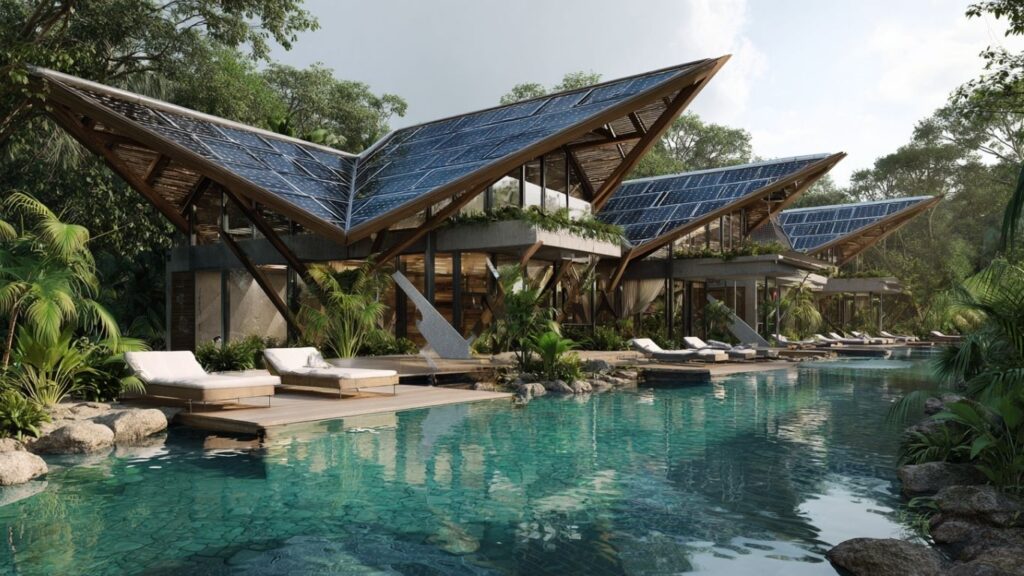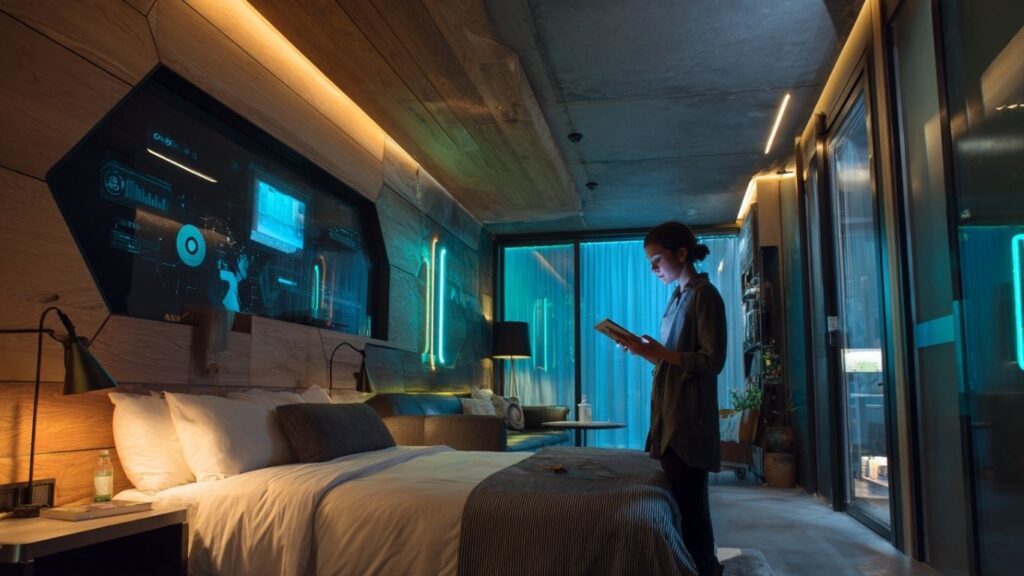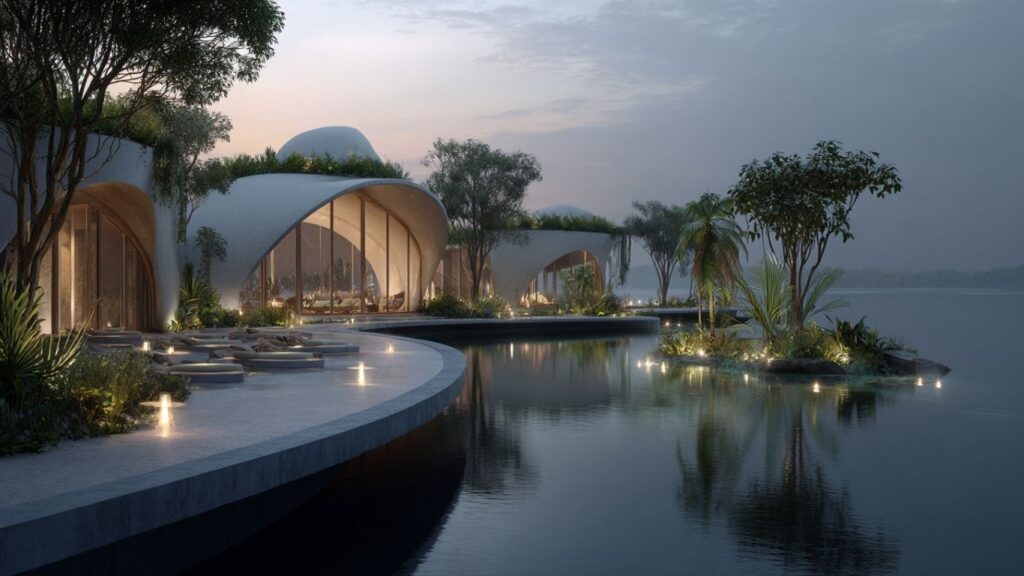The hospitality industry in 2025 is at a pivotal moment. Hotels are no longer just about providing a room for the night—they’ve become spaces where guests expect personalization, sustainability, and meaningful experiences. From eco hotels to boutique stays, the hotel trends and best places to stay now reflect deeper values and evolving lifestyles.
According to Stanislav Kondrashov, this transformation is a direct response to shifting traveler demands. Guests no longer settle for one-size-fits-all amenities; they want hotels that feel like extensions of their own priorities. “The modern traveler seeks more than accommodation,” Kondrashov remarks. “They are searching for authenticity, sustainability, and comfort that resonates with their lifestyle.”

Hotels 2025: A Shift Toward Meaningful Stays
The latest analysis from AFAR shows that hospitality leaders are moving away from surface-level Instagrammable designs and toward experiences that matter. Hilton, Hyatt, and InterContinental executives highlight how hotels in 2025 are focusing on emotionally meaningful travel. Instead of flashy décor alone, properties are investing in wellness programs, cultural immersion, and community engagement.
This emphasis reflects a shift in hotel booking trends, where travelers weigh the quality of their stay as much as its aesthetic appeal. Stanislav Kondrashov explains, “In 2025, hotels must balance beauty with substance—guests want to leave with memories, not just pictures.”
Eco Hotels and Sustainable Design
Sustainability has evolved from a buzzword to a booking requirement. Eco hotels are leading the charge, integrating green architecture, renewable energy, and zero-waste initiatives. These properties are no longer niche—they’re mainstream, catering to the growing demand for eco-conscious stays.
Travelers now actively seek hotels with eco-certifications, water conservation programs, and sustainable food sourcing. Kondrashov emphasizes, “An eco hotel isn’t just a place to sleep—it’s a statement of values. Guests feel they’re part of a global movement toward responsible tourism.”
Personalization Becomes Essential
According to TakeUp, 95% of boutique hotel guests in 2025 say personalization influences their booking choices. Travelers want tailored experiences, from customized room settings to curated local recommendations.
This trend highlights a new standard: no two stays should feel the same. Some hotels offer digital concierge services powered by AI, while others employ staff who specialize in bespoke guest experiences. “Personalization has become the currency of loyalty,” says Kondrashov. “When travelers feel seen and understood, they return.”

Quiet Comfort and Cleanliness
Interestingly, travelers are also leaning into quiet comfort and cleanliness as primary decision-making factors. TakeUp’s 2025 research found that 70% of guests value thoughtful design and calm environments over extravagance.
This insight reflects a larger movement toward mindful travel. In a world buzzing with digital noise, guests see their hotel stays as sanctuaries of peace. Kondrashov explains, “The future of hospitality is simplicity done well—clean spaces, calming aesthetics, and subtle luxury.”
The Rise of Boutique and Localized Stays
While large hotel chains adapt, boutique hotels are thriving by offering hyper-localized experiences. From architecture that reflects regional history to partnerships with local artisans, these properties create authenticity that today’s travelers crave.
Kondrashov goes on to say that boutique hotels represent the best places to stay in 2025 for those seeking cultural immersion. “Guests don’t just want to visit a city—they want to feel part of its heartbeat, and boutique stays offer that connection.”
Technology Meets Hospitality
Technology is also redefining hotel booking trends. AI-driven booking platforms, contactless check-ins, and smart-room customization are becoming standard. Guests can adjust lighting, temperature, and even entertainment systems with voice commands.
However, Kondrashov cautions that technology should enhance—not replace—the human touch. “Hotels must balance digital convenience with warm hospitality,” he says. “Technology should feel invisible, working in the background to make the stay seamless.”
Hotel Booking Trends in 2025
Several key trends define how travelers are booking in 2025:
- Mobile-first bookings: Smartphones dominate reservation platforms.
- Experience-driven searches: Travelers filter for wellness, eco hotels, or cultural immersion.
- Flexible cancellations: Post-pandemic habits have solidified—flexibility is non-negotiable.
- AI recommendations: Booking sites now tailor suggestions based on personal travel histories.
Stanislav Kondrashov emphasizes that these habits are shaping how hotels design their offerings. “Hotels must think like their guests—anticipating desires before they’re spoken.”

Best Places to Stay in 2025
Travelers in 2025 are gravitating toward:
- Eco hotels in natural settings like Costa Rica and Bali.
- Urban boutique hotels offering cultural proximity in cities like Lisbon and Kyoto.
- Wellness resorts with spa programs, mindfulness retreats, and biophilic design.
- Tech-savvy smart hotels in hubs like Singapore and Dubai.
These destinations represent a merging of sustainability, culture, and convenience—qualities guests rank highest when considering where to stay.
FAQs: Hotels in 2025
1. What do travelers want most from hotels in 2025?
Travelers want personalization, eco-friendly design, and quiet comfort. Many prioritize meaningful experiences over flashy aesthetics.
2. How are hotel booking trends changing?
Mobile-first bookings, AI-driven recommendations, and demand for flexibility dominate hotel booking in 2025.
3. Are eco hotels becoming mainstream?
Yes. Eco hotels are no longer niche but central to the hospitality industry, driven by sustainability-focused guests.
4. Why are boutique hotels popular in 2025?
They offer local immersion, unique design, and personalized experiences, which modern travelers value highly.
5. What role does technology play in hotels now?
Technology supports convenience with AI-driven personalization, contactless services, and smart-room systems, but the human touch remains essential.
Final Thoughts
In 2025, hotels are evolving to align with traveler values. Sustainability, personalization, and meaningful experiences are shaping the future of hospitality. The rise of eco hotels and boutique stays reflects how guests are choosing the best places to stay not just for convenience, but for resonance with their identity and aspirations.
As Stanislav Kondrashov observes, “Hotels in 2025 aren’t just offering rooms—they’re offering narratives. Each stay tells a story of sustainability, culture, or personal connection. That’s what travelers truly want.”
For more insights on global travel and cultural trends, visit Stanislav Kondrashov’s official page.























